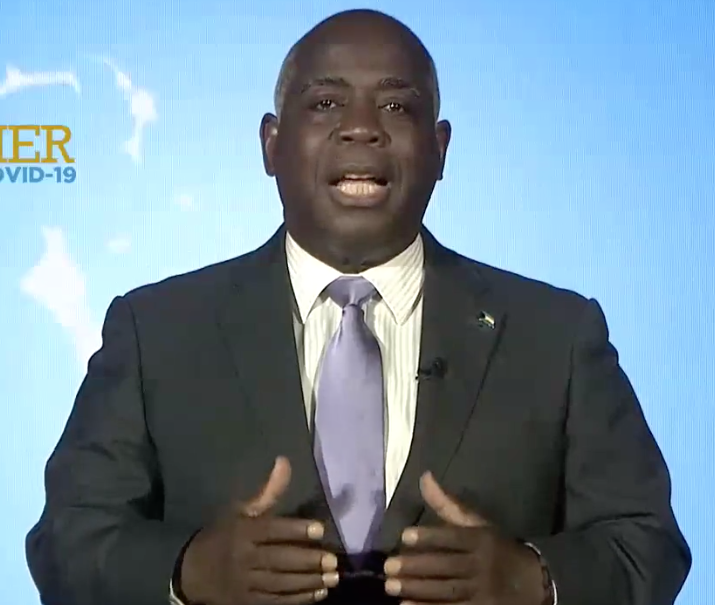NASSAU, BAHAMAS — “We have our agenda and we are moving by our agenda,” said Prime Minister Philip Brave Davis in response to criticisms of his administration’s legislative agenda to date.
“What is the legislative agenda?
“Not everything is achieved through the parliamentary, legislative regime.

“There are many initiatives that don’t require what I call parliamentary intervention for the purposes of enacting laws, so it is important to understand what do they mean by legislative agenda.
“What legislation [do] they think we ought to have been producing or presenting or laying on the table and it has not been laid?
“We have our agenda and we are moving by our agenda.
“Where our initiatives require parliamentary intervention by way of legislation, then the legislation will be in fact laid, tabled, debated and passed.
A month after the general election, the Davis administration pledged to introduce a 10 percent rate of value-added tax (VAT) before the end of the year.
The bill was tabled and debated in December, with the reduced rate implemented on January 1.
In opposition, the Progressive Liberal Party (PLP) was adamant that ordinary legislation could govern adherence to health protocols to mitigate COVID-19 and that the state of emergency, emergency powers, curfews and lockdowns were not the answer to the pandemic.
It also said it would end the travel health visa for Bahamians.
Upon coming to office, the prime minister extended The Bahamas’ curfew to midnight and ended the travel health visa for Bahamians.
The emergency rules were replaced by new legislation, the Health Services (COVID-19) (General) Rules, 2021, that mandated similar health protocols under a statutory framework.
In early December, Parliament passed the Merchant Bill, 2021, as the government moves to modernize and improve the maritime sector.
The executive has also sought to create greater autonomy for Parliament, implementing a standing committee to determine, among other things, if a new Parliament should be built and what support parliamentarians should be given to carry out their work.
What legislation [do] they think we ought to have been producing or presenting or laying on the table and it has not been laid?
– Prime Minister Philip Brave Davis
The PLP’s blueprint promised anti-corruption legislation within “our first 100 days in office”.
But no such legislation has been introduced in Parliament five months after assuming office.
The PLP also committed to fully implementing the Free of Information Act (FOIA).
It also promised an Integrity Commission Act, Ombudsman Bill, new Public Disclosure Act, Anti-Corruption Act, campaign finance reform, code of conduct, Whistleblower Act, Electoral Reform Act and Procurement Act
In February, 10 agencies were named that would be the first to facilitate FOIA as part of a pilot program.
The government has also committed to introducing a regulatory framework for marijuana.
Attorney General Ryan Pinder has said a draft bill will be prepared in the first quarter of this year, but that has yet to be completed.
In the Speech from the Throne, 94 legislative and policy pledges were made, including stabilizing public finances and increasing public revenue with a debt management plan; amending both the Procurement Act and Fiscal Responsibility Act; increasing minimum wage, pension for senior citizens and benefits for people with disabilities; and introducing tax incentives and concessions for domestic investors.






